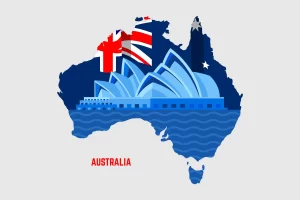In a recent interview, David Coleman, Australia’s newly appointed Minister of Immigration and Multicultural Affairs, revealed his plans of prioritising regional visas. Additionally, the immigration portfolio no longer falls under the portfolio of the Home Affairs Ministry.
Hon David Coleman has had a long and illustrious career spanning multiple industries. Before entering politics, he worked in the media and technology industries in the private sector, where he held various positions in several different companies. He was Chairman of ninemsn, Director of Strategy and Digital of Nine Entertainment Co, operator of the Mathletics business, and board member of 3P Learning, and Sky News as well as a few other companies.
Latest statistics published by Home Affairs reveal that skilled migrants were allocated an estimated 128,550 places. Of these, about 16,000 were regional visa grants.
The repercussions that are expected from this move could include:
Allocated Places For Regional Visas As Subclass 489 Regional Could Be Realigned
The subclass 489 regional visa is a type of provisional visa. This visa allows skilled workers to live and work in regional or low-population areas of Australia for a period of up to 4 years. This visa paves the way for migrants who have proven that they are committed to living and working in a regional area, to apply for permanent residence.
According to the Home Affairs website, only ten invitations were issued for the subclass 489 in August 2018, which is very low as compared to the 250 invitations issued for August 2017.
Greater Focus On The Regional Sponsored Migration Scheme Program
The Regional Sponsored Migration Scheme or RSMS is a special program aimed at helping businesses located in regional Australia. The RSMS makes provisions for regional employers to nominate skilled migrants where there is a genuine need for a full-time paid employee. The vacancy should be available for a minimum of 2 years and the nominee could be on a temporary visa and in Australia already, or they could be overseas. Under the RSMS, only businesses that are legally and actively operating in regional Australia can nominate workers of foreign origin for permanent residence. As this visa focuses on developing regional areas, the program is not applicable to businesses operating in major cities such as, Sydney, Gold Coast, Melbourne, Brisbane, Wollongong and Newcastle, Perth.
This particular visa category is not points tested and does not require an Expression of Interest to be submitted.
Expansion of Regional Occupation List
The Regional Occupational List (ROL) includes occupations that are needed in regional Australia. The occupations on the ROL are regularly modified and reviewed by the Department of Jobs and Small Businesses. This is a special department of the Australia Government assigned with the responsibility of regulating job services, small businesses, employment, deregulation and the labour market.
Migrants may wish to exercise this option if their occupation is listed on the ROL. For example, they will get direct access to subclass 482 and 187 visas.
Greater Focus On Labour Agreements
If there is a demonstrated need for skilled labour, approved businesses can use Labour Agreements to sponsor skilled workers from overseas if the Australian labour market cannot meet their need and if standard temporary or permanent visa programs are not available.
The Department of Jobs and Small Businesses works together with employers to develop relevant labour agreements, which are then valid for about 5 years. According to the Australian Government, Labour Agreements offer the most effective solution to the pressing shortage of skilled labour in regional areas as they provide a pathway to permanent residence.
There are industry specific labour agreements that pertain to the fishing, pork, meat, dairy, and restaurant industries.
One thing that is not yet clear is what the Minister’s stand is on the question of Australian Citizenship. In 2017, the Senate squashed the contentious Citizenship bill because of its stringent eligibility requirements in terms of language, character and residency. Whether the Minister decides to re-introduce this bill is yet to be seen.






